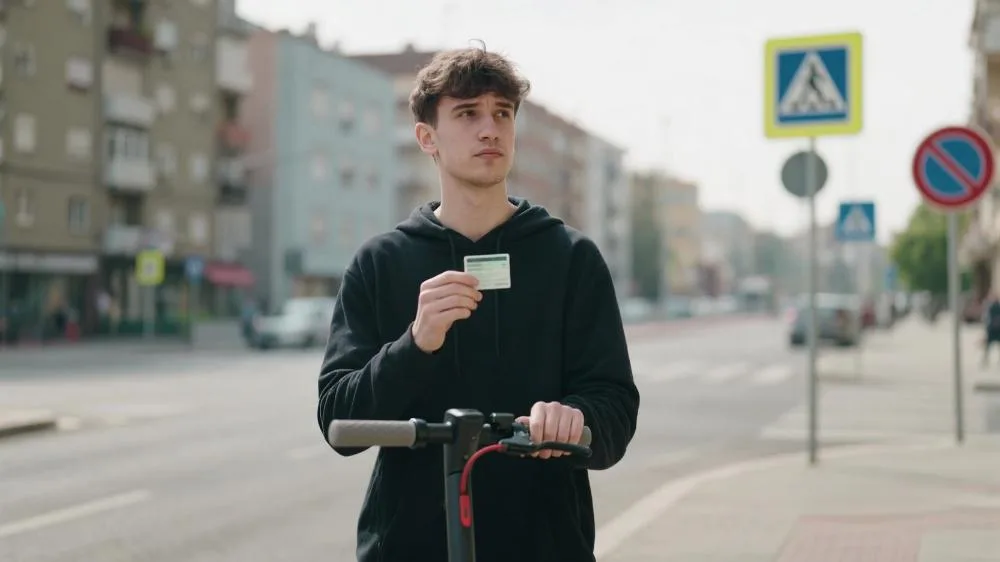do you need a license to ride an electric scooter

As urban traffic congestion worsens, electric scooters (e-scooters) have become a popular choice for short-distance travel in Western cities due to their convenience and eco-friendliness. However, many potential users wonder: “Do you need a license to ride an electric scooter?” The answer isn’t a simple yes or no—it depends on local regulations, vehicle power ratings, and usage scenarios.
According to the EU’s 2025 Light Electric Vehicle Classification Standards, electric scooters are categorized into three types: recreational models (under 500W), commuter models (500W-1000W), and high-performance models (over 1000W). Each category has different legal requirements, with only high-performance models typically requiring special permits in most EU countries. U.S. regulations vary even more significantly by state—for example, California allows license-free riding for models ≤1000W, while New York City requires all public road riders to hold at least a motorcycle learner’s permit.
This guide systematically explains electric scooter licensing requirements across major Western markets, analyzes related rules (insurance, age limits, helmet laws), and provides actionable advice for legal compliance.

Main Content
1. Current EU Regulations
The EU Transport Commission’s 2025 Uniform Micro-Mobility Act formally defines electric scooters as “Personal Light Electric Vehicles” (PLEVs) with these key provisions:
- ≤500W models: Treated as bicycles—no license/registration required, but must follow local speed limits (typically 20-25km/h). Germany and the Netherlands additionally require bells and headlights.
- 500W-1000W models: Require an AM-class moped license (obtainable via theory test) in France, Italy, and 11 other countries. Spain and Portugal mandate third-party liability insurance.
- >1000W models: Classified as light motorcycles—require A1 license and license plates. The UK specifically bans these from sidewalks.
Notably, EU members can adjust details nationally. Denmark raised its license-free threshold to 750W, while Sweden requires all public-road electric scooter to carry CE certification.
2. Key North American Differences
U.S. state laws remain fragmented, but 2025 National Association of Transportation Statistics (NATS) data shows a trend toward distinguishing private and shared vehicles:
- Private electric scooter:
- 38 states use a “three-tier system”: ≤250W (Texas), 250W-750W (age 16+ in Washington), >750W (Florida requires M-class license).
- Unique cases: Since 2024, New York City mandates an online safety course certification for all riders regardless of power.
- Shared rentals:
Providers like Bird and Lime typically cap speeds at 20km/h to qualify as license-free. Cities like San Francisco additionally require operator-provided insurance.
Canada’s Motor Vehicle Act amendments uniformly classify electric scooter as “power-assisted bicycles”—nationwide license exemption if: max speed ≤32km/h, motor ≤500W, and equipped with pedals (Quebec exempts the pedal rule).
3. Related Laws & Compliance Tips
Beyond licensing, Western users should note:
- Age limits: EU minimums range from 14 (most countries) to 16 (Germany). U.S. states vary (12-18 years). Novascooter data shows 25% of violations involve minors using high-power models.
- Insurance: Mandatory in France/Austria (~€60-120/year). U.S. rentals include coverage; private users should add riders to home insurance policies.
- Safety gear: Italy/Spain require EU-standard EN 1078 helmets; UK mandates them only for under-16s. North Americans should prioritize MIPS-equipped helmets in urban areas.
Step-by-Step Compliance:
- Verify power ratings on vehicle labels and retain documentation
- Check local transport department sites (search “electric scooter law [state/country]”)
- Confirm speed limits in rental apps match local standards
- Note cross-border rules: Switzerland requires temporary registrations
4. Industry Challenges & User Solutions
Electric scooter regulations often lag behind technology. A 2025 Technical University of Munich study highlights three gaps:
- Power ratings poorly correlate with real-world speeds (some 500W models hit 45km/h downhill)
- Low enforcement rates (London police catch only 19% of violations)
- Insurance claim ambiguities (30% of accidents involve illegal sidewalk riding)
Proactive Measures:
- Install GPS trackers (e.g., Garmin Varia RCT715) for incident evidence
- Avoid speed-limit removal mods that void legal status
- Join local rider groups (e.g., U.S. PEVA) for regulation updates
Conclusion
Whether electric scooter require licenses reflects society’s balancing act between convenience and safety. With the EU’s 2025 reforms and ongoing U.S. state-level updates, users must stay informed. Remember: higher power/speed means stricter rules. Choosing appropriate models and obeying traffic laws ensures electric scooters remain sustainable urban transport solutions.
